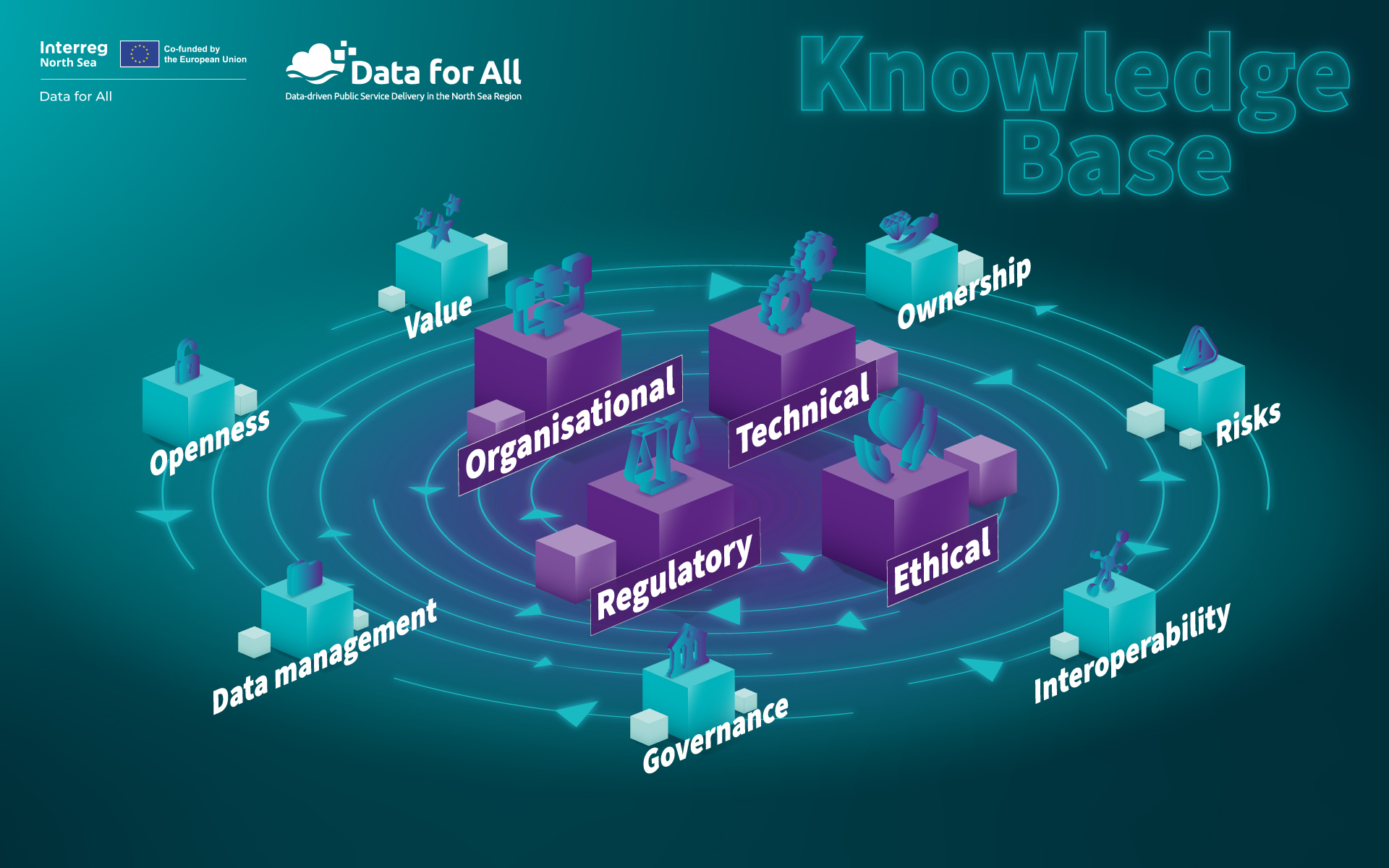

Interoperability
The ability of diverse systems, organizations, and datasets to seamlessly exchange, interpret, and use data—regardless of variations in formats, structures, or standards. This capability is essential in data-driven projects, as it enables cross-domain collaboration, unlock the value of data, and ensures consistent, effective communication among stakeholders.

Data governance
The framework of policies, processes, and structures that ensure data is managed and aligned with organizational goals. Governance is essential in data projects to guarantee ownership, quality, and responsible use of data.

Data management
The practice of collecting, organizing, protecting, and storing data to ensure accuracy, accessibility, and security. It covers the data lifecycle, quality control, and compliance. Effective data management improves decision-making while maintaining integrity and reducing risks.

Data openness
The degree to which data is accessible, transparent, and reusable within legal and ethical boundaries. Openness is a core value in data projects to foster innovation and generate broader societal benefits.

Data values
The added value generated by data in supporting decision-making, service delivery, and innovation. It highlights the strategic importance of data as a means to enhance societal and organizational impact and improve efficiency in data-driven projects.

Data ownership
The responsibilities and rights over data, including ownership, access, and usage rights. Clarity on data ownership is crucial in data projects to ensure legal certainty and effective collaboration.

Data risks
The potential threats and uncertainties surrounding data, including security, privacy, and ethical issues. Managing these risks is fundamental in data projects to build trust and minimize negative outcomes.
